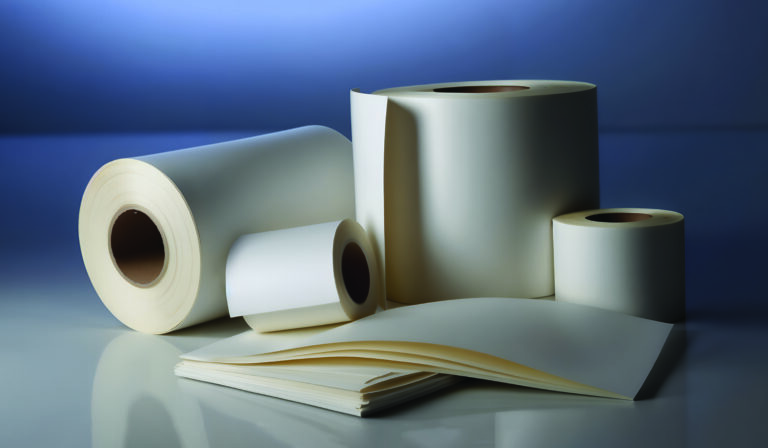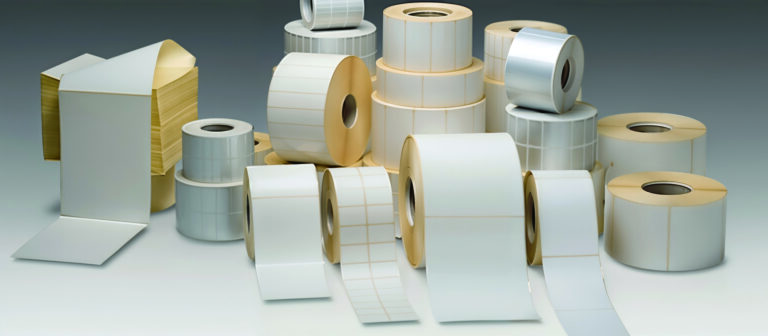YUEHELE
Guangdong Yuehele Label Material Co., Ltd. is a high-tech enterprise integrat
ing scientific research, production, sales, technical support and service for users.

Overline
Self-adhesive materials
Adhesive labels are indispensable in modern packaging, identification, and logistics. Their value lies not only in printed information but also in the materials themselves. Faced with diverse options (coated paper, thermal paper, PVC, PET, PE…), how do you choose? This guide details the properties, applications, and selection criteria for key materials.
Core Structure: Three Essential Layers
All adhesive materials share this architecture:
- Face Stock: The visible layer carrying print. Determines appearance, texture, and durability.
- Adhesive: Bonds the label to surfaces. Varies by use (permanent, removable, freezer-grade).
- Release Liner: Protective backing (silicone-coated paper) for easy die-cutting and peeling.
Face Stock Comparison: Key Materials at a Glance
| Material | Base Composition | Key Characteristics | Primary Applications |
|---|---|---|---|
| Coated Paper | Paper | Superior print quality. Low durability – susceptible to water, oil, chemicals, and friction. | Price tags, indoor product labels, short-term logistics. |
| Thermal Paper | Specialty Paper | Requires no ink (heat-activated print). Extremely fragile – fades with heat/light/moisture. | Receipts, shipping labels, temporary tickets. |
| PVC | Soft Plastic Film | Flexible, chemical/water-resistant. Good outdoor durability. Multiple finishes (matte/clear). | Electronics labels, chemical drums, outdoor equipment. |
| PET | Rigid Plastic Film | Maximum durability – withstands chemicals, UV, extreme temps. Metalized options available. | Automotive/medical labels, PCB tags, premium products. |
| PE | Soft Plastic Film | Ultra-conformable – stretches to fit curves. Excellent moisture/freeze resistance. | Shampoo bottles, squeeze tubes, frozen food packaging. |
Other Notable Materials:
- Synthetic Paper (PP): Paper-like printability + plastic durability. Ideal for outdoor tags.
- Uncoated Paper: Absorbent surface for handwriting. Used in labs/warehouses.
- Removable Adhesive Variants: Any face stock paired with temporary adhesive.
Material Selection Checklist:
- Environment: Indoor/outdoor? Exposure to water/chemicals/temperature extremes?
- Surface: Material (plastic/glass/metal)? Curved or textured?
- Lifespan: Temporary or permanent?
- Appearance: Gloss/matte/clear? Print complexity?
- Function: Need heat resistance (e.g., soldering)? Removability?
- Budget: Cost hierarchy: Coated Paper < Thermal ≈ Synthetic Paper < PE < PVC < PET.
Quick-Reference Guide:
- Economical printing: Coated Paper (indoor/short-term)
- Barcodes/transport: Thermal Paper (⚠️ Not for archiving)
- Durable + flexible: PVC
- Extreme conditions: PET
- Contoured containers: PE





 leave a message
leave a message